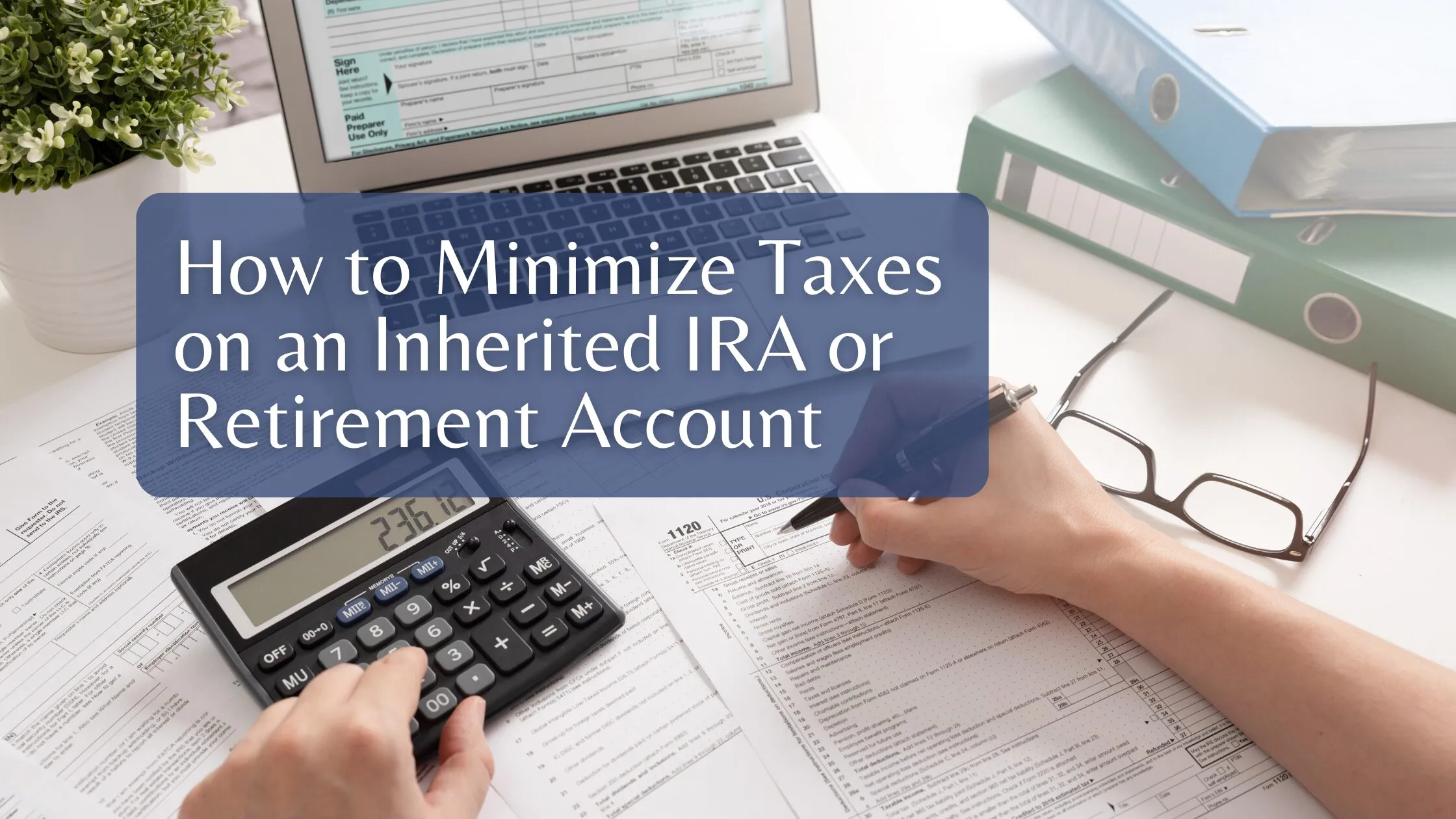How to Minimize Taxes on an Inherited IRA or Retirement Account

Inheriting a retirement account can be a financial blessing, but without careful planning, it can also come with a hefty tax bill. The tax rules vary depending on your relationship to the deceased, the type of account, and your financial situation. Fortunately, there are smart strategies you can use to minimize taxes and make the most of what you’ve inherited.
If You Are a Spouse
You have the most flexibility when inheriting a retirement account as a spouse. Before making any decisions, it’s important to understand when you’re required to begin distributions.
You have two main options:
-
Roll it into your own IRA: This allows you to treat the account as your own, delaying required minimum distributions (RMDs) until your own RMD age.
-
Use an Inherited IRA: This may be preferable if you’re under age 59½ and need to access the funds without incurring early withdrawal penalties.
If you don’t need the assets immediately and your taxable income is relatively low, you might consider converting the inherited IRA to a Roth IRA gradually. By taking small, strategic distributions (perhaps just enough to fill your current tax bracket), you can pay taxes now and transfer the assets into a Roth IRA. This allows for tax-free growth and eliminates future RMDs on the converted portion.
If You Are a Non-Spouse Beneficiary
Your strategy depends on when the original account holder passed away:
-
If the account owner died before 2020: You may use the “stretch IRA” method, taking distributions over your life expectancy using the single life expectancy table.
-
If the account owner died in 2020 or later: Most non-spouse beneficiaries must deplete the account by December 31 of the 10th year following the year of death.
You can take withdrawals at any time during the 10-year period. However, waiting to take everything in year 10 could trigger a significant tax bill. Instead, consider spreading withdrawals out over several years, especially during years when your income is lower. For example, if you plan to retire in five years, it might make sense to defer larger distributions until years 6–10.
Avoid taking lump-sum distributions while you’re still working or earning a high salary, as this could push you into a higher tax bracket. Instead, aim to take just enough each year to “fill up” your current tax bracket without spilling into the next one.
If the original account holder had already reached RMD age and was taking required distributions, you may be obligated to continue taking minimum distributions annually. If they hadn’t reached RMD age, you’re allowed to defer distributions to any point within the 10-year window.
Other Special Considerations
If you qualify as an Eligible Designated Beneficiary (EDB), you may be able to stretch distributions over your lifetime. These exceptions allow for more time to spread out distributions and manage taxes more efficiently.EDBs include:
-
Minor children of the decedent
-
Disabled or chronically ill individuals
-
Beneficiaries less than 10 years younger than the deceased
Obligations of Inheriting a Retirement Account
Inheriting a retirement account comes with both opportunities and responsibilities. Understanding your options and creating a thoughtful distribution strategy can help you minimize taxes and make the most of your inheritance. Because every financial situation is unique, it’s important to work with a trusted advisor who can help you navigate the rules and make informed decisions.
Schedule a consultation with one of our financial advisors today to create a personalized plan that aligns with your goals and helps protect your financial future.
Shawna Theriault, CFP®, CPA, CDFA®
Senior Financial Advisor, Wiser Wealth Management
Share This Story, Choose Your Platform!
Wiser Wealth Management, Inc (“Wiser Wealth”) is a registered investment adviser with the U.S. Securities and Exchange Commission (SEC). As a registered investment adviser, Wiser Wealth and its employees are subject to various rules, filings, and requirements. You can visit the SEC’s website here to obtain further information on our firm or investment adviser’s registration.
Wiser Wealth’s website provides general information regarding our business along with access to additional investment related information, various financial calculators, and external / third party links. Material presented on this website is believed to be from reliable sources and is meant for informational purposes only. Wiser Wealth does not endorse or accept responsibility for the content of any third-party website and is not affiliated with any third-party website or social media page. Wiser Wealth does not expressly or implicitly adopt or endorse any of the expressions, opinions or content posted by third party websites or on social media pages. While Wiser Wealth uses reasonable efforts to obtain information from sources it believes to be reliable, we make no representation that the information or opinions contained in our publications are accurate, reliable, or complete.
To the extent that you utilize any financial calculators or links in our website, you acknowledge and understand that the information provided to you should not be construed as personal investment advice from Wiser Wealth or any of its investment professionals. Advice provided by Wiser Wealth is given only within the context of our contractual agreement with the client. Wiser Wealth does not offer legal, accounting or tax advice. Consult your own attorney, accountant, and other professionals for these services.





